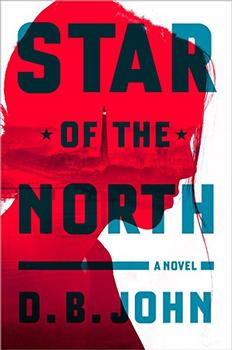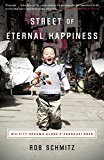Summary | Excerpt | Reviews | Beyond the book | Read-Alikes | Genres & Themes | Author Bio

Ordinary Lives in North Korea
by Barbara DemickBarbara Demick's book, Nothing to Envy: Ordinary Lives in North Korea, attempts the nearly impossible task of introducing and immersing readers to an utterly foreign and inaccessible world. Demick's recounting of the stories of six North Korean defectors seems designed to emphasize the regular aspects of their lives rather than the incomprehensible - the concerns of life that Americans and North Korean citizens share. Many times Demick is successful in drawing her reader into the forbidden world of the Democratic People's Republic of Korea (DPRK), but some tales are so jarring that one has to fight against disbelief and shock to stay connected to the characters. This is the kind of book that is riveting one moment and revolting the next: a fitting description, perhaps, for the country it explores.
Six North Koreans' stories are intermingled to create Demick's narrative. All are connected to one city, Chongjin, in northeast North Korea. Mi-ran, one of the earliest to successfully defect, is the daughter of a lowly mine worker and, though attractive and talented, she struggles against a future stunted by her father's "tainted blood" as a former South Korean soldier. Mi-ran's secret love, Jun-sang is another of the six. Jun-sang's life is the most privileged of any of Demick's profiled characters, but his intelligence and curiosity eventually leads to a strong desire for freedom and an intense dissatisfaction with the North Korean government. Though Mi-ran and Jun-sang maintained a hidden relationship from their teens into their mid-twenties, neither ever risked sharing with each other any sentiments critical of their political gods, Kim Il-sung and his son, Kim Jong-il. Song Hee-Suk, another of Demick's subjects, is the most loyal of North Korean citizens, a mother and factory worker who would have never considered defection, even after watching her husband and son die of starvation during the famine of the 1990's. Song Hee-Suk's daughter Oak-hee, on the other hand, inherited an intense desire to escape from the mistreatments of her violent husband as well as the overheard misgivings about the North Korean government from her own father later in his life. The final two refugees Demick features are Kim Hyuck, an impetuous young man who survived the severity of a North Korean orphanage and later, twenty months of prison and labor camp; and Dr. Kim, a woman who feels perpetually indebted to North Korea because of her free medical education, but is confused by her father's strange reaction to Kim Il-sung's death in July of 1994.
 Through the lives of each of these people Demick demonstrates the tragedy and absurdity of the Kim Dynasty's repeated claims that North Koreans "have nothing to envy." Despite living in a country without internet access, reliable transportation or adequate food supply, North Koreans are taught from childhood that they are most privileged to be citizens of the last communist dictatorship of its kind. This book, a product of years of Demick's travel and research, gives six former North Koreans the rare opportunity to speak for themselves, to tell their uncensored stories to a world hungry for a better understanding of the Korea above the 38th parallel.
Through the lives of each of these people Demick demonstrates the tragedy and absurdity of the Kim Dynasty's repeated claims that North Koreans "have nothing to envy." Despite living in a country without internet access, reliable transportation or adequate food supply, North Koreans are taught from childhood that they are most privileged to be citizens of the last communist dictatorship of its kind. This book, a product of years of Demick's travel and research, gives six former North Koreans the rare opportunity to speak for themselves, to tell their uncensored stories to a world hungry for a better understanding of the Korea above the 38th parallel.
Above: This nighttime satellite image of Korea shows North Korea cloaked in darkness while South Korea is brightly lit.
Interesting Links
![]() This review was originally published in The BookBrowse Review in January 2010, and has been updated for the
October 2010 edition.
Click here to go to this issue.
This review was originally published in The BookBrowse Review in January 2010, and has been updated for the
October 2010 edition.
Click here to go to this issue.

If you liked Nothing to Envy, try these:

by D.B. John
Published 2019
A propulsive and ambitious thriller about a woman trying to rescue her twin sister from captivity in North Korea, and the North Korean citizens with whom she forms an unlikely alliance.

by Rob Schmitz
Published 2017
An unforgettable portrait of individuals who hope, struggle, and grow along a single street cutting through the heart of China's most exhilarating metropolis, from one of the most acclaimed broadcast journalists reporting on China today.
Your guide toexceptional books
BookBrowse seeks out and recommends the best in contemporary fiction and nonfiction—books that not only engage and entertain but also deepen our understanding of ourselves and the world around us.